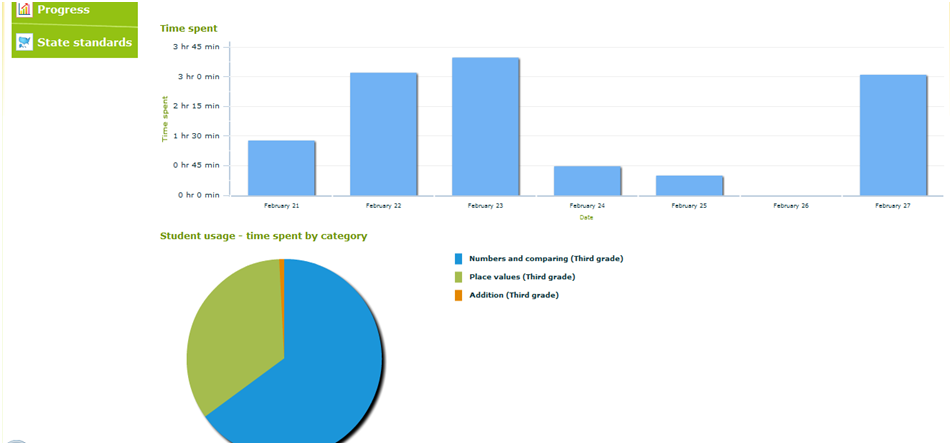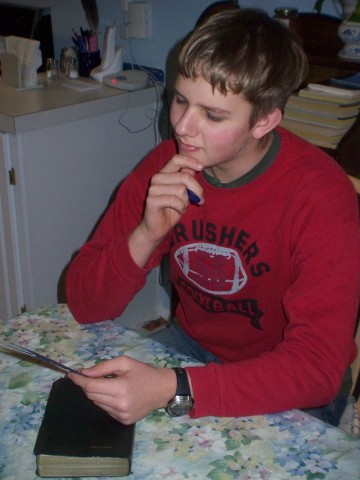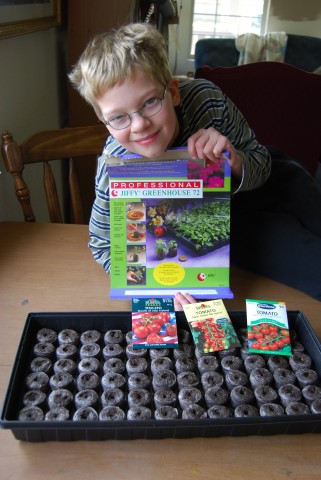A few months ago, I was looking for a way to punish my children when they are slack in their schoolwork. I wanted something that would be measurable, tedious and difficult, without taking up any of my time.
Key Parenting Principle: When punishing your children, you should always take care that you don’t punish yourself along the way.
In my search for a corrective tool, I happened upon IXL, an online program providing a seemingly endless variety of math problems at elementary through middle school levels. At the time, the subscription cost was prohibitive, and so I mentally set it aside. It just wasn’t worth $12 a month to me to punish my children — after all, I can punish them for free, most of the time.
A few weeks ago, I became discouraged with my children’s math progress. One problem with homeschooling is that you don’t always know what you don’t know, or haven’t been taught. I noticed that several of my kids seem not to have a solid understanding of some foundational math skills, and it made me sad to see them struggle to learn, when I know it is because we haven’t prepared them properly.
And then it came to me from the mists of my memory: IXL is the answer! Suddenly, I realized that IXL would be the perfect solution to the problem — not as a punishment tool, but instead as a way to fill in the gaps and solidify their understanding of foundational math principles.
As I often do with new, shiny ideas, I jumped on this with both feet. “Let’s sign up Rachel and Daniel,” I enthused to Kathy.
“Are you sure about this?” she hesitated. “They are pretty busy already with school … ”
“They can always make time for this — it will be fun for them! They’ll thank me when they take the SAT and get great math scores.”

Ancient Edgren Proverb: Waiting for your kids to thank you is a good way to build patience. I signed Rachel and Daniel up, and assigned them five sections each day, demanding they reach 100% ‘mastery’ on each skill.
Later, when I saw how much fun it was for Rachel and Daniel, I decided to sign David and Sarah up, too. Sadly, IXL ends after middle-school, and Joshua (the show-off) is taking Calculus. “Maybe they’ll come up with an IXL for Washington State History,” I told Kathy, hopefully. “We could give him a subscription for Easter, wouldn’t that be fun?”
<sarcasm>Assigning five sections of IXL per day was a wildly popular decision.</sarcasm>
Perhaps the coolest thing about IXL is the way they enforce ‘mastery’. In order to get to a 100% Smartscore™, you need to prove to the program that you really understand the skill. As you proceed, the questions get harder and harder, and if you miss one, you are given two or three more questions of the same kind, to make sure you weren’t just guessing. If you don’t make any mistakes, you can finish a section in about 30 problems — but for every one you miss, you can expect three more. In extreme cases, you might find yourself working as many as 143 (I speak hypothetically, of course) problems on the same skill.
Another really excellent attribute of IXL is the way it enforces careful precision and accuracy. As with many homeschooled kids, my children are used to their teacher giving them all kinds of grace and mercy. If they can show that they understand the problem, they can often get away with small arithmetic errors without being penalized.
Not so with IXL — the computer doesn’t care if you cry — if you didn’t enter in the exact, correct answer (with the decimal in the right place, the proper sign, and in some cases, the correct units) then you get no credit for that question. Learning that sometimes there is no ‘give’ in the world is important, I think.
I wanted them to quickly get up to speed, so I told them all to go down at least one grade-level from their current grade. “Do five sections a day,” I instructed them. “You must reach 100% mastery before you can go on to the next section.”
Since there are between 200 and 250 skills for each year level, I figured we could knock off a year’s worth of math in about ten weeks, leaving the summer for their current grade level. I was so excited that this automated tool would solve all our Math troubles.
A third feature of IXL really sells it to parents or teachers — the program readily produces reports that show each child’s progress. With minimal effort, I can see how long each child is taking to reach mastery on each skill, and how many skills they’ve finished each day. You can tell which children are skating through the skills with minimal effort, and which are struggling. In less than 30 seconds, I can monitor a whole day’s worth of progress.
It wasn’t more than a day or two into the new IXL program, before the push-back began. “I hate IXL,” one of my children complained. “IXL is ruining my life!”
As it turned out, five sections was a bit of an aggressive goal. While some sections might be finished in just a few minutes, others were taking more than an hour. Sarah, my nine-year-old, was spending an average of two and a half hours a day on IXL alone.
Tonight, we had a meeting of the mimes, in which I gave each person a chance to speak up about IXL.
I tried to explain my vision for the program, and how it was going to be a huge blessing in their lives, but much of my pep-talk fell on deaf (and in some cases, hostile) ears. Eventually, we came to a compromise: each school day, each of my kids will spend a minimum of 40 minutes working problems on IXL’s website, and will complete a minimum of one skill (no matter how long it takes). Also, I will pay a bonus of $100 cash (or $200 toward Worldview Academy or a short term missions trip) when they finish all 200+ skills of a grade level.
This seemed to cheer most of them up a bit. Maybe in a month or so I will publish a progress report, so you can see who is working the hardest toward Math Mastery.
Tim

























